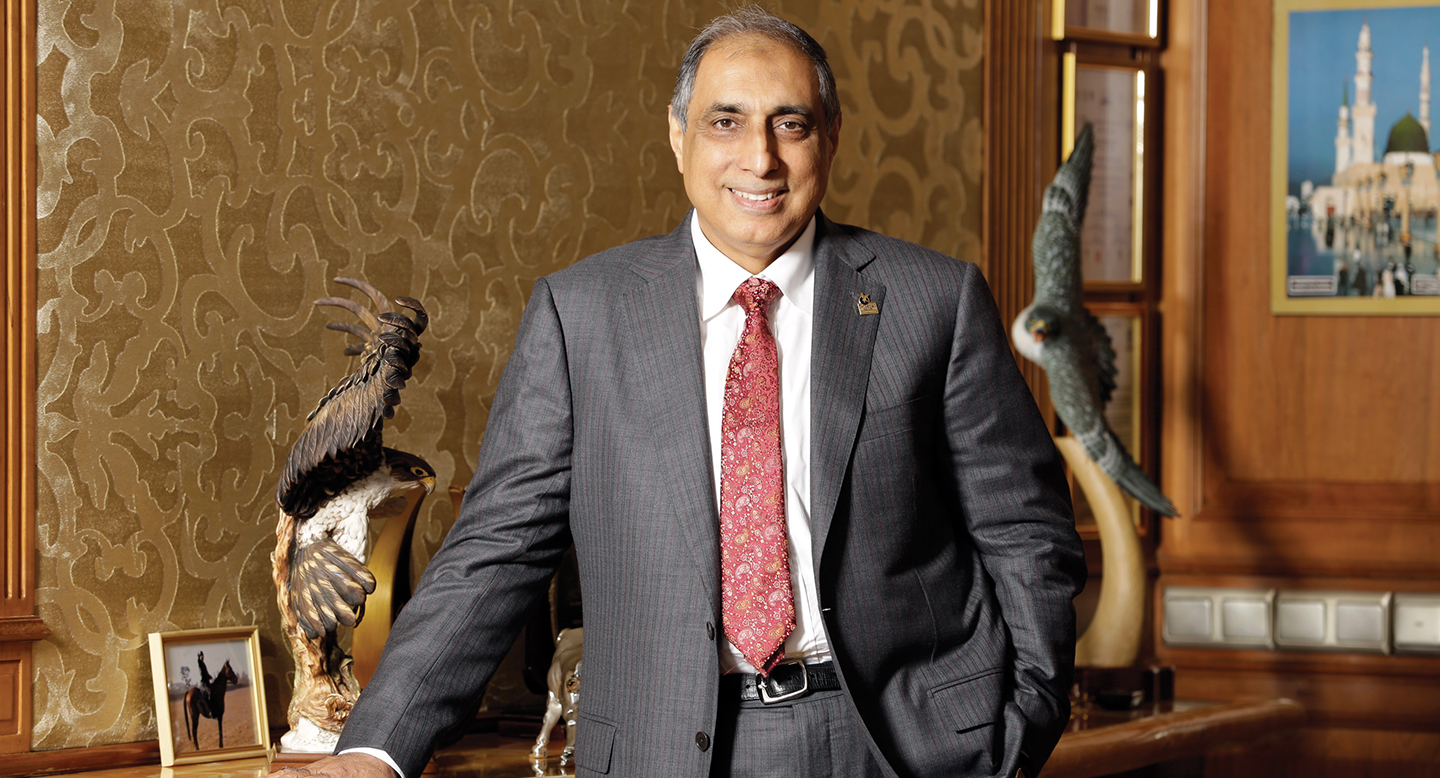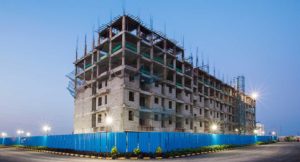In conversation with Irfan Razack, chairman and managing director, Prestige Group, one of South India’s leading property developers with interests in residential, commercial, retail, leisure and hospitality sectors

Prestige Estates Projects (PEPL), the publicly listed entity owned by the Bengaluru-based Prestige Group is one of the few listed real estate companies that weathered a fairly sluggish economy with aplomb.
In an April 22, 2014 research report authored by Motilal Oswal, the brokerage firm listed out several reasons why the brokerage has a buy rating on the stock. Interestingly, two of the key reasons listed were PEPL’s strong presales numbers for Q4 FY14 and a fairly de-risked model where the company sells a healthy mix of real estate products from residential and commercial to shopping malls and hospitality ventures.
Of course, PEPL’s numbers do justice to the brokerage’s faith in the stock. In the fourth quarter of FY2014, PEPL reported presales of 0.99 msf (amounting to approx. Rs. 6 billion), in spite of it being a pre-election period when people deferred buying decisions. In the earlier financial year (FY 2013), the company reported annual total sales of Rs. 3,727.40 crore, thanks to a strong brand and the company’s ability to scale up across its diversified product portfolio. At the time of writing this article, PEPL’s market capitalisation was Rs. 8,641 crore on a price earnings ratio of 25.43.
On the back of these strong numbers, at The Smart CEO, we decided to interview Irfan Razack, a veteran real estate entrepreneur, to explain to us his scaling up strategy, the finer nuances of succeeding in the real estate space and also give us a glimpse into his management style.
(As narrated by Mr. Irfan Razack)
Let me begin with a fairly simple question. What does Prestige Group mean to you and what is your vision for the Group?
In the early days, when we started our journey in the real state space, I used to just buy and sell land. Over time, as I got more involved and excited about the sector, we started building commercial and residential buildings. Of course, we did this at a very small scale but with a focus on quality and excellence. I got passionate about design and creation and since then, whatever we’ve done has been about land, brick and mortar.
Over time, the company forayed into shopping centers, then the later 90s and early 2000s were about IT Parks and mind you, these were at a scale one could not even imagine at the time. As is often repeated, real estate is about location (what comes where), relevance (does it fit the needs of my target audience) and product (what am I building). One should have a well thought out strategy about these three aspects.
My firm belief is that with a growing urbanised population, the need for housing will never stop. The maximum demand is at the bottom rung. Of course, there is good demand for luxury housing, but if you want volumes, you’ll have to serve the middle income and lower income groups. You create a brand and grow it further; it is no different from any other sector, say coffee retail for example. Coffee Day as a brand might have premium offerings, but once the brand was established they opened more and more outlets to serve a large cross section of society. Housing is no different.
Of course, now at Prestige Group, we offer multiple real estate products – SEZ, residential (from Rs. 25 lakh to Rs. 25 crore), commercial, malls, and hospitality – each with a different business model. The key is not to confuse one product with another and deeply understand the purpose of each offering.
What are your key priorities over the next three to five years? From a financial model perspective, presales seems to be a number the group is focused on. Why?

Actually, real estate has a long gestation period. What we started doing a few years back are starting to show results now. For example, the shopping malls we’re building in Mangalore and Hyderabad was planned a while back. Sourcing land, conducting due diligence, planning and approval – all these take time. The key aspect is to design the whole thing carefully, especially from a financial perspective.
We used a combination of debt and internal accruals. The focus is to make sure the debt gets paid off from our rental income. To continue using the shopping mall example, it is important to understand that for us to do well here, our tenants have to do well. The strategy has to be good; the stars have to align as well!
Of course, our main bread and butter will continue to be housing. As mentioned in the annual report, even here we look at multiple models – joint ventures, outright land purchases and so on. In JVs too, we’re seeing a new model where revenue sharing is preferred rather than the JV partner taking ownership of apartments. The fundamental of a JV is that the landowner gets an upside if the market behaves well. There are several advantages to owning land, as well. For example, if you own the land completely, you can decide to build immediately or postpone it a bit depending on the market. You have that flexibility.
The other important aspect, especially for builders of our size, is to look at less penetrated micro markets. For example, if you’ve developed a few projects in the Whitefield area, you keep developing more and more in the same region. However, one should look at other emerging micro-markets. For example, till now Electronic City didn’t develop much as a housing market because of lack of access. Now with the elevated road, and improvements to social infrastructure (schools, hospitals etc.) some builder might look at Electronic City from a housing perspective. At Prestige, we’re constantly evaluating new, less penetrated micro markets.
From a financial perspective, as you rightly mentioned, pre-sales during pre-launch and launch are extremely important to tie-up cash flow. One cannot purely rely on debt and accruals. At Prestige, we’ve consistently looked at doing reasonable sales in both pre-launch (as soon as approval is done) and launch. Of course, the customer gets a price advantage but from an operational perspective, we’ve separate teams that look at fixing any anxieties of our customers who book with us during pre-launch. We need to keep them in the loop about what we’re doing and that is part of the operational rigor.
To get back to answering your question on key priorities, I’d say geographical expansion is also part of the game plan. We’ve launched in Chennai, Hyderabad, Mangalore, Mysore and Kochi. We approach new cities carefully. The right set of people has to be recruited; we launch slowly and allow it to scale up.
Overall, as I answered in your previous question, we’re present in every segment (middle income to ultra luxury) in housing, except maybe the EWS (economically weaker sections) category. For this segment, I’d strongly recommend changes to government laws and regulations. Right from looking at tax structure to stamp duty, we need changes for it to make sense for both a buyer and the builder. Governments need to understand that housing is a basic need and they need to enable housing for the EWS category by introducing special tax structures.

Please do chip in a word of advice for upcoming real estate entrepreneurs.
My advice is fairly straightforward, yet often forgotten. There is tremendous potential for many, many players in this sector. The key is to
Follow the law of the land
Deliver what you promise
Work according to your capacity. I can’t want to become a DLF overnight. Someone else can’t aspire to become a Prestige very quickly.
Focus on excellence.
At a very basic level, one needs to understand that things take time in this space.
In my younger days, I had a couple of mentors who taught me the nuances of the sector and the right way to do things. Some of these processes are painful, but they have to be done without taking shortcuts.
Tell me about your management style. How do you divide your time between so many different activities happening at the Group?
My days are actually extremely structured. Mornings are for site visits and internal meetings; afternoons for meetings with landowners and customers. It is very important to not pile up work on your head. I often tell my executives to be decisive. One could make the wrong decision, but make it then and there and move on.
For me, I have a monthly calendar that is very structured. For example, Mondays are for engineering meetings. Tuesday and Wednesdays are for meetings with architects and designers. Thursdays I meet with marketing teams and also our other internal heads of property management, HR and other functions. There is an accounting meeting on Wednesday afternoon, and so on. Now that we’re in multiple cities, travel is also scheduled for a month. Space is often left to clear out other priorities.
In my earlier days, I used to carry a diary. Now with the iPhone and all that, that is gone. But, I still believe in maintaining a no-clutter approach where I don’t end up piling on more and more work. Whether something is important or not, all our staff are encouraged to be decisive and clear stuff, then and there.
SANDIPAN PAL, VICE PRESIDENT – RESEARCH, MOTILAL OSWAL, COMMENTS ON PEPL AND THE OVERALL REAL ESTATE SECTOR
On the BUY rating for PEPL
The company has a presence in all the verticals of real estate like residential, commercial, retail and hotels. They have established a brand in the Southern market in all these verticals. This makes it more resilient towards any downturns and income they earn from their commercial and retail verticals will help in maintaining a stable level of income. They are also prepared to take advantage of the upswing in the verticals they operate in.
If you look at the Bengaluru market, it is one of their best performing markets as it has a very competitive environment with affordable pricing. The city has also seen highest amount of migration in recent times leading to population growth. And hence, the housing side demand has been steady. This has also led to increased employment opportunity.
Commercially, it has been the best performing market and among the areas leased, Prestige is one of the marquee companies with respect to office space and retail rentals. While there is commercial leasing, it will convert into residential demand in three years, as that person who is taking up a job will buy a house within three years. This is a strong cycle.
The management has also been very good with respect to new project acquisition, on time execution and revenue generation. They have met the guidance given by them comfortably. These factors generate a lot of confidence amongst investors as they have done it in a weaker economic situation as well, when many of their peers have struggled to maintain their earlier growth rate. Now with the economic upscale, there are a lot of under construction projects. Their income and rental growth is looking up. The commercial market can also get revived.
On the real estate industry and its future
The industry has two kinds of problems – structural and cyclical. Cyclical issues are with respect to commercial demand, high pricing and lower income while structural issues mean approval delays and so on. With increase in demand from commercial players, the cyclical issues will be resolved and automatically, we expect the structural issues like regulatory delays to get resolved. Despite this, the improving macro economic situation will drive the demand going forward and the next three years will be better.
On PEPL three years from now
They will continue to cater to a particular market, as they do not want to expand beyond South India. Three years back they were generating a rental income of Rs. 160 crore and three years down the line I expect it to be around Rs. 500 crore annually. The total sales figure will go up by 10 per cent to 15 per cent annually and the balance sheet should be much healthier. Currently, they are in a high capex mode but once they go deeper automatically those things will be taken care of.



